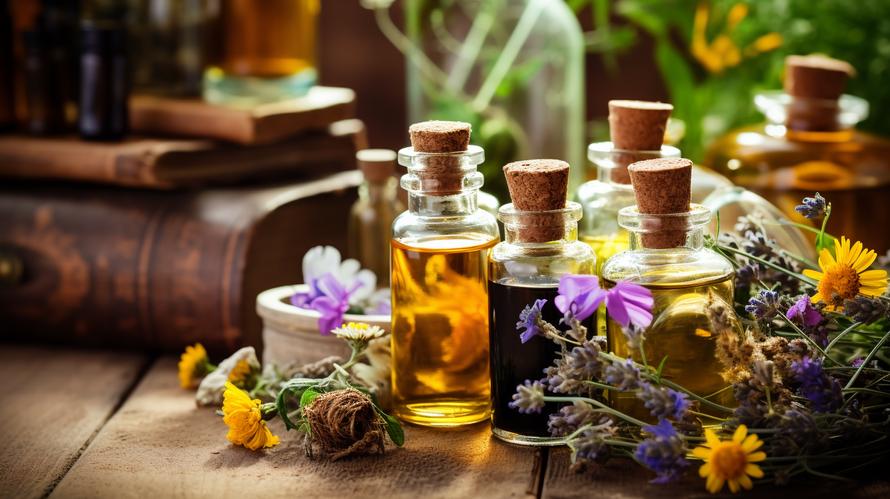In a small clearing within the depths of the Amazonian rainforest, there thrives a peculiar tree that the indigenous people have revered for centuries. Known as “Sangre de Drago,” or Dragon’s Blood, this tree produces a bright red sap that traditional healers use to treat a vast range of ailments, from wounds and skin infections to gastrointestinal issues. Scientific studies are now revealing that this astounding natural remedy harbors compounds with potent antioxidant and anti-inflammatory properties, perhaps validating centuries of traditional medicinal use and offering a glimpse into the untapped potential of nature’s pharmacy.
This is just one riveting example of alternative medicines that have sparked the curiosity of both health enthusiasts and scientists alike. We are increasingly turning to nature in search of novel treatments as we grapple with the limitations and side effects of conventional pharmaceuticals. As we dive deeper into the world of alternative medicines, we uncover not only fascinating traditions and remedies but also potential breakthroughs in holistic care that could shape the future of healthcare.
One such promise lies in the ancient tradition of Ayurveda. Originating from India over 3,000 years ago, Ayurveda emphasizes balance within the body’s systems through diet, herbal treatment, and yogic breathing. Modern research has begun to explore the efficacy of Ayurvedic practices, finding merit in certain herbs such as Ashwagandha for stress relief and Turmeric for inflammation. These herbs are more than just condiments for your curry; they are frontrunners in the natural health movement, capturing attention with their minimal side effects and potential to prevent and cure various conditions.
But Ayurveda is only the tip of the iceberg. Traditional Chinese Medicine (TCM) is another ancient system that has made waves in the modern health world. Acupuncture, a well-known TCM practice, has gained acceptance in Western medicine as a treatment for chronic pain and stress. Studies suggest it can help relieve symptoms by triggering the body’s natural painkillers. Less known but equally fascinating, TCM also utilizes unique therapies like cupping and herbal formulas, which are now undergoing scientific scrutiny to uncover their mechanisms and benefits.
A dive into the soothing waters of the Blue Lagoon geothermal spa in Iceland offers further evidence of nature’s healing prowess. Rich in minerals like sulfur and silica, these geothermal waters are not just a tourist attraction but have been used therapeutically for people with skin conditions like psoriasis. The Blue Lagoon’s research and development team is committed to exploring these properties, leveraging the water’s composition for dermatological products and treatments.
As alternative medicines gain ground and credibility, the potential they hold for the future is tremendous. Probiotics, for instance, once just a health fad, have now been scientifically shown to influence everything from gut health to mental well-being, impacting conditions like IBS and depression. The human microbiome holds secrets that we are only beginning to understand, and this is where the promise of tomorrow lies – in the microscopic world that could offer broad-spectrum benefits when balanced correctly.
However, navigating the world of alternative medicines is not without its challenges. Misinformation and unverified claims can lead to dangerous consequences. It is crucial, therefore, to approach alternative therapies with a balance of open-mindedness and skepticism. Here’s where informed advice comes into play – always consult with healthcare professionals who understand both the traditional and modern aspects of these therapies. They can provide guidance tailored to individual needs and conditions.
Moreover, despite the growing evidence supporting many alternative treatments, not all have been subjected to rigorous scientific examination. Therefore, critical research and funding for these practices are imperative for unlocking their full potential. The continued integration of traditional knowledge with scientific innovation could revolutionize our approach to medicine, paving the way for more personalized and holistic care.
To the health-conscious reader looking to explore alternative medicines responsibly, here is a piece of practical advice: start small. Incorporate proven and safe elements like meditation, yoga, or certain herbal supplements into your wellness routine. Ensure proper sourcing and quality of any natural products and seek professional advice to avoid interactions with any medications you may be taking.
In conclusion, the realm of alternative medicines holds many great hopes and exciting promises for both today and tomorrow. From Dragon’s Blood to the hot springs of Iceland, our planet is abundant with natural resources that could revolutionize healthcare. As we harness these gifts responsibly and synergize them with modern medical practices, we progress towards a future where medicine is more than just a quick fix—it’s a harmonious blend of age-old wisdom and cutting-edge science that nurtures our minds, bodies, and spirits in their entirety.



